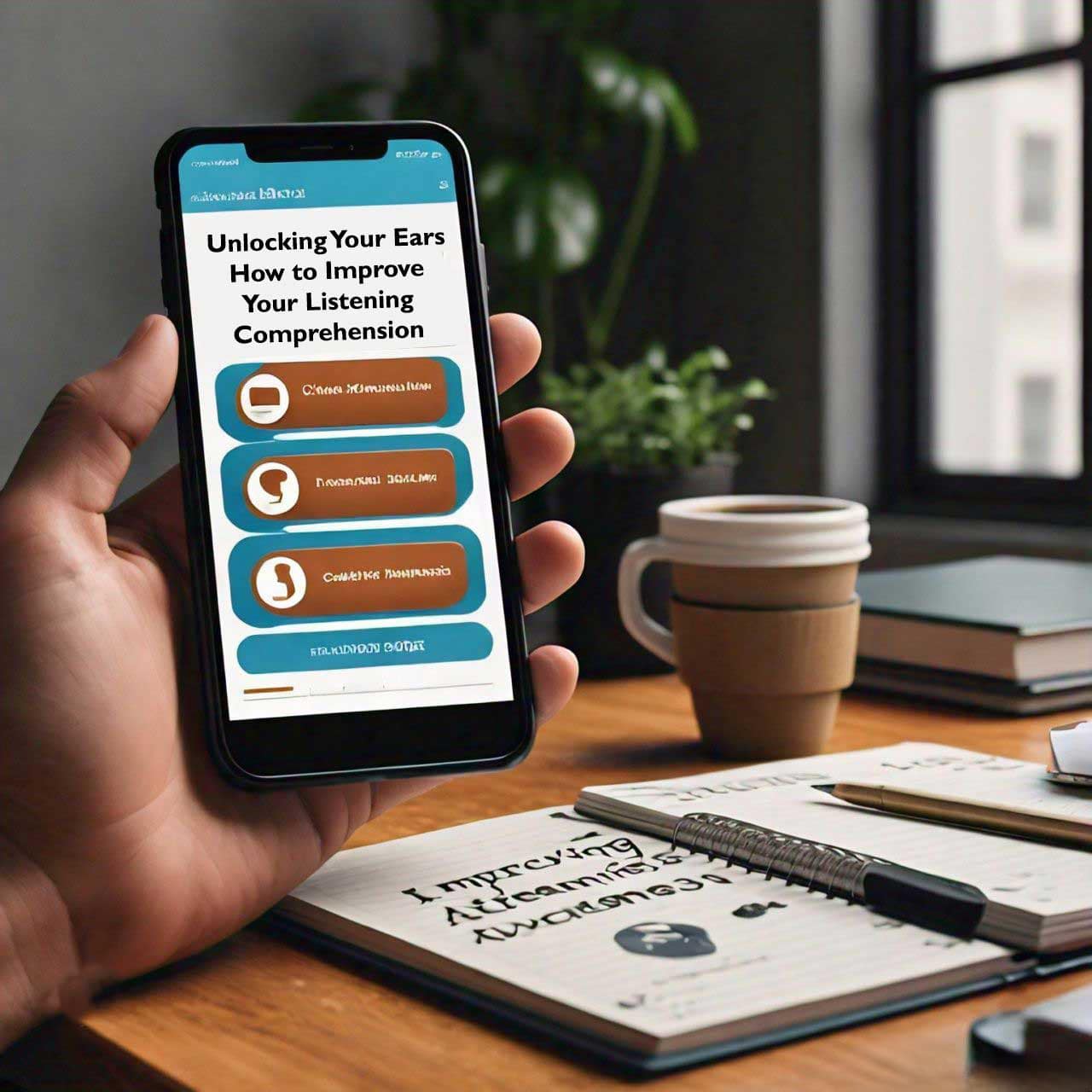Listening comprehension is a vital skill in mastering any language, allowing you to understand spoken words, follow conversations, and engage in meaningful communication. Whether you’re preparing for language exams like IELTS, TOEFL, or simply looking to enhance your everyday communication, improving your listening comprehension can open up a world of opportunities. Here’s a comprehensive guide to help you boost your listening skills effectively.
Table of Contents
Why Listening Comprehension Matters
Listening comprehension is fundamental for effective communication. It enables you to:
– Understand Spoken Information: Grasp the details and nuances of spoken language in various contexts.
– Engage in Conversations: Participate actively and respond appropriately in discussions.
– Improve Pronunciation and Speaking Skills: Mimic native speakers’ accents, intonations, and rhythms.
– Succeed in Academic and Professional Settings: Follow lectures, meetings, and presentations with ease.
Strategies to Improve Listening Comprehension
1. Active Listening Practice
Active listening involves fully concentrating, understanding, responding, and remembering what is being said.
– Focus on the Speaker: Pay close attention to the speaker without letting your mind wander.
– Avoid Interrupting: Let the speaker finish before you respond or ask questions.
– Summarize and Reflect: After listening, summarize what you heard to ensure comprehension.
2. Expose Yourself to Diverse Listening Materials
Variety is key to improving listening comprehension. Different accents, speeds, and contexts will prepare you for real-world listening situations.
– Podcasts and Audiobooks: Choose topics that interest you and gradually increase the difficulty level.
– Movies and TV Shows: Watch with subtitles initially, then try without them to challenge yourself.
– News Broadcasts: Listen to news in the target language to get accustomed to formal and fast-paced speech.
3. Practice with Native Speakers
Interacting with native speakers can significantly enhance your listening comprehension. Here’s how to make the most of these interactions:
– Language Exchange: Join language exchange programs where you can practice listening and speaking with native speakers.
– Social Media and Online Communities: Engage in conversations on platforms like Reddit, Facebook groups, or language learning apps.
– In-Person Meetups: Attend local language clubs or cultural events to practice listening in a natural setting.
4. Utilize Technology and Apps
There are numerous apps and online resources designed to improve listening comprehension. Some of the most effective include:
– Duolingo and Babbel: These apps offer listening exercises tailored to various proficiency levels.
– Yabla and FluentU: These platforms provide video content with interactive captions, allowing you to see translations and explanations of words as you listen.
– Speechling: Offers listening practice with real human voices and provides feedback on your pronunciation.
5. Implement the Shadowing Technique
Shadowing involves listening to a piece of audio and repeating it as closely as possible.
– Choose Short Clips: Start with short audio clips or sentences.
– Mimic Exactly: Try to copy the speaker’s accent, intonation, and speed.
– Gradually Increase Complexity: Move on to longer and more complex audio materials as you become more comfortable.
6. Engage in Intensive Listening Practice
Intensive listening involves focusing on specific elements of a listening passage to understand it in detail.
– Break Down Audio: Listen to a short passage and break it down into smaller parts.
– Analyze Each Part: Pay attention to vocabulary, grammar structures, and pronunciation.
– Repeat and Review: Listen multiple times and review your notes to reinforce understanding.
7. Practice Listening for Gist and Detail
Improve your ability to understand both the main ideas and specific details in spoken language.
– Listening for Gist: Focus on understanding the overall message or main idea of the passage.
– Listening for Detail: Pay attention to specific information, such as dates, names, and numbers.
8. Take Notes While Listening
Note-taking can help you retain information and stay focused.
– Use Abbreviations and Symbols: Develop a system of shorthand to quickly jot down key points.
– Organize Your Notes: Group related information together to make it easier to review later.
– Review and Summarize: After listening, review your notes and summarize the main points in your own words.
9. Regular Practice and Patience
Consistency is crucial for improving listening comprehension. Incorporate listening practice into your daily routine and be patient with your progress.
– Set Realistic Goals: Establish achievable goals for your listening practice, such as listening to a podcast episode every day.
– Track Your Progress: Keep a journal of your listening activities and note improvements over time.
– Stay Motivated: Celebrate small victories and stay motivated by reminding yourself of your goals.
Conclusion
Improving your listening comprehension takes time and effort, but with consistent practice and the right strategies, you can make significant progress. Whether you’re preparing for an exam, enhancing your professional skills, or simply enjoying the process of learning a new language, these tips will help you become a more effective and confident listener. Start incorporating these techniques into your daily routine today and watch your listening skills soar!



